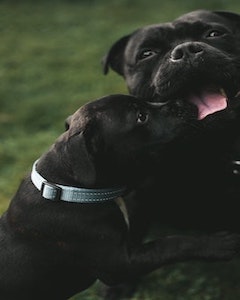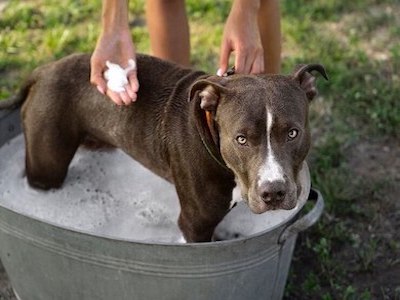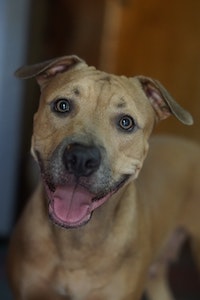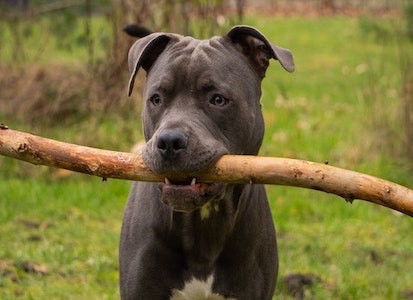Key Information
Energy, Training, and Intelligence

Pit Bulls are athletic and energetic by design. Along with tons of energy, they are very smart dogs. The
combination of energy and lack of exercise can be catastrophic. Pit Bulls form very strong bonds with
their owners and require quality bonding time every day. If left alone for long periods of time,
especially without exercise, they can become anxious, depressed, and destructive.
Training can help to manage their behavior by providing mental and physical stimulation. Puppy training
sessions are a great tip for socializing a pit bull because it helps them build their confidence. Once
into
adulthood Pit Bulls sporadic behavior and energy levels start to decline and
mellow out. Senior Pit Bulls still have that spunk for life and still require at least 30 minutes of
exercise daily to keep up good joint and overall health, however, they are much more slow and easy
going.
Coat Care

Pit bulls are single-coated, meaning that they have only one type of hair on their bodies. They lack the
layer of longer guard hairs as well as a soft, insulating undercoat, which keeps them
warmer and
protects their skin from the elements. Due to their short fur and lack of undercoat, pit bulls’ skin is
not shielded
from environmental allergens and irritants, making them more susceptible to skin problems.
Pit Bulls have
mostly been bred without regard for genetics, allowing some hereditary issues to be passed on through
genetics. Dogs with skin issues can be self-destructive as they try endlessly to solve their discomfort.
It’s important to spot the signs of skin issues such as: red or irritated skin, paw chewing or licking,
dry itchy skin, excessive scratching, biting, and the appearance of scabs or sores.
Joint Care

The good new is, Pit Bull-type type dogs are very athletic and healthy. But of course some health issues
can pop up, some of the top ones include: hip and elbow dysplasia and osteoarthritis. Having a larger
stocky build puts a lot of pressure on their joints which causes hip and elbow dysplasia, The root of
joint mobility issues. Pit bull-type breeds could benefit from preventative
dosing of a joint supplement added to their daily diet.
Hip and Elbow Dysplasia go hand in hand with arthritis in the pit bull-type breed of dog. Again, a
preventative measure can benefit these dogs as their stocky build
impacts their joints over time. If your dog is over age 5, some more noticeable signs of arthritis
include: reluctance for exercise and play, stiffness in the morning after sleeping the night, visible
stiffness from getting up to from lying down, and difficulty doing routine activities.
Socialization

Socialization is particularly important for pit bulls. The reasons for this can be divided into three
categories: strength and speed, tendency toward dog aggression, and breed reputation. The pit bull is
without question, one of the breeds capable of doing the most damage in the shortest amount of time to a
perceived enemy.
As with all large, powerful breeds that can do a lot of damage quickly, pit bull owners
have a greater duty to look out
for the safety of others. To help your pit bull establish a healthy interaction with fellow canines and
dog-owners, getting them enrolled in an
obedience course is effective. This helps your pit bull to understand the nuances of social behavior and
avoid temperamental problems.